Organic Herb Garden Ideas: How To Start An Organic Herb Garden
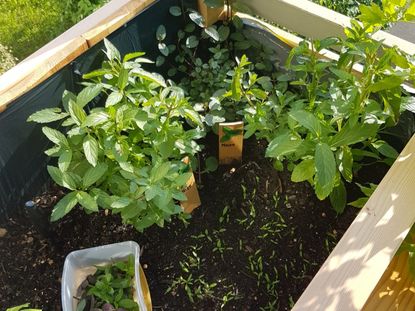
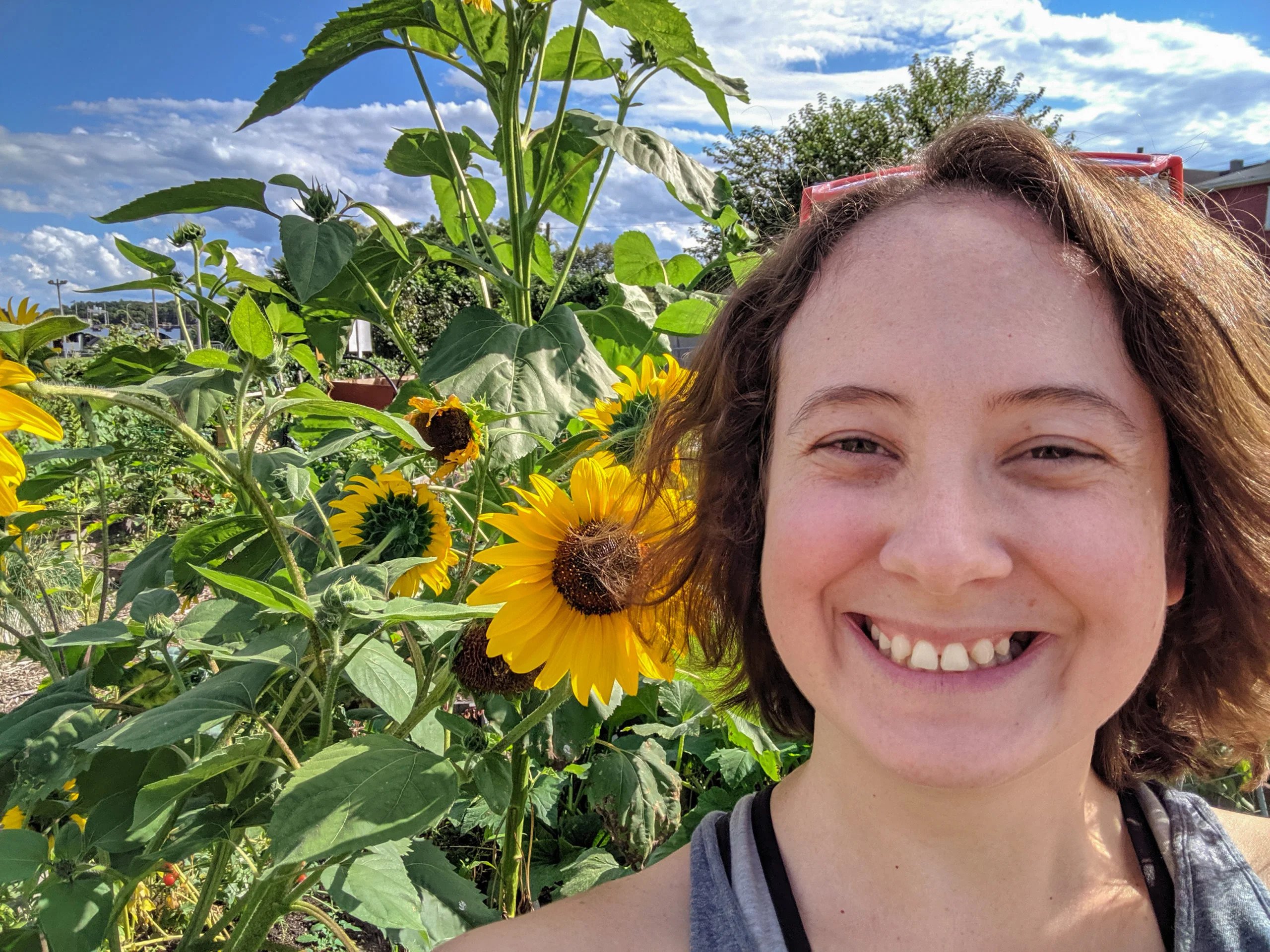
Herbs are a fantastic addition to the garden. If you are truly limited in space, they may be the only element of your garden. From their easy maintenance to their usefulness and fragrance, however, they are completely worth it, not to mention that organic herb garden ideas are endless. Keep reading to learn how to start an organic herb garden.
How to Start an Organic Herb Garden
Apart from convenience, one of the best things about growing your own food is that you know exactly what goes into producing it. Growing organic herbs in your garden is as easy as using only organic certified materials and avoiding non-certified ones. Since you’re in control, there are no surprise chemicals and being in control of herbs is so easy. Most of the popular herbs in Western cooking are native to the Mediterranean, so they thrive in similar conditions. This means well-drained neutral soil, preferably with some organic matter, like compost or manure. Herbs can be grown from seed or propagated from cuttings, divisions, or layering. Tarragon, chives, and mint all grow well from division. Lavender, sage, lemon balm, and rosemary can all be grown from cuttings. Layering, the process of starting roots from a branch that is still actively growing on the mother plant, works well for herbs with flexible stems, such as:
All other herbs can be sown from seed. If your area experiences hard winters, start your seeds indoors in late winter and transplant them outside when the weather warms. Anise, cilantro, fennel, and dill should be sown directly in the ground in the spring.
Growing Organic Herbs in Pots
Growing organic herbs in pots is a great alternative to planting them outdoors. Even if you have space in your garden, you may want to consider growing your herbs in containers. You can bring them inside to overwinter, and you can keep them on hand in or near your kitchen for cooking. Most herbs need at least six hours of direct sunlight, so make sure you have adequate space near a south-facing window for wintertime. If you don’t, invest in some grow lights to keep them happy. Make sure not to over fertilize-- herbs don’t really need fertilizer, and while it makes the leaves more plentiful, it makes the scented oils more diffuse. In containers, where fertilizer can build up, just skip it.
Gardening tips, videos, info and more delivered right to your inbox!
Sign up for the Gardening Know How newsletter today and receive a free download of our most popular eBook "How to Grow Delicious Tomatoes."

The only child of a horticulturist and an English teacher, Liz Baessler was destined to become a gardening editor. She has been with Gardening Know how since 2015, and a Senior Editor since 2020. She holds a BA in English from Brandeis University and an MA in English from the University of Geneva, Switzerland. After years of gardening in containers and community garden plots, she finally has a backyard of her own, which she is systematically filling with vegetables and flowers.
-
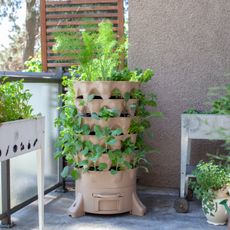 Clever Vertical Vegetable Garden Ideas For Small Spaces – 7 Ways To Save Space
Clever Vertical Vegetable Garden Ideas For Small Spaces – 7 Ways To Save SpaceShort on garden space? Learn some vegetable garden ideas for small spaces that are fun and easy.
By Mary Ellen Ellis
-
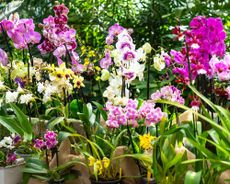 26 Different Types Of Orchids – With Pictures & Information
26 Different Types Of Orchids – With Pictures & InformationDiscover stunning orchid types to grow in your home and garden – from easy beginner varieties to rare and exotic species that are the preserve of experts.
By Melanie Griffiths
-
 Grow Tasty Herbs For Roast Turkey In Your Garden
Grow Tasty Herbs For Roast Turkey In Your GardenCan you season your turkey with herbs you grow in your own garden? Yes! Click to learn more.
By Amy Grant
-
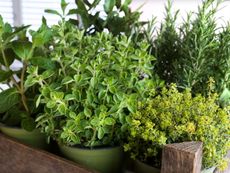 10 Easy Herbs For Beginners
10 Easy Herbs For BeginnersIf you’re new to herb growing, there are some perfect beginner herbs that are low maintenance and easy. Here are our top ten.
By Mary Ellen Ellis
-
 How To Make A Rain Gutter Herb Garden
How To Make A Rain Gutter Herb GardenOne really fun look outside the box is a hanging rain gutter herb garden. A gutter planter is a unique way to house and showcase plants.
By Bonnie L. Grant
-
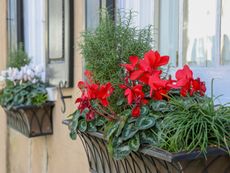 Grow A Beautiful, Edible Herb Window Box
Grow A Beautiful, Edible Herb Window BoxGrowing herbs in window boxes is a space-saving method for producing culinary ingredients for kitchen use. Click for more.
By Laura Miller
-
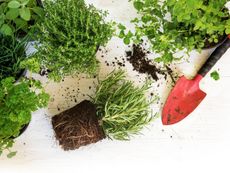 Best Herbs To Direct Sow Vs. Start Indoors
Best Herbs To Direct Sow Vs. Start IndoorsKnowing when to buy herb plants or start them from seeds or cuttings is essential to your success. Read on to learn more.
By Laura Miller
-
 Learn About The Highly Prized Silphium Herb
Learn About The Highly Prized Silphium HerbWhat if there was a perfect plant? In ancient times such a treasure existed. It was the silphium plant.
By Laura Miller
-
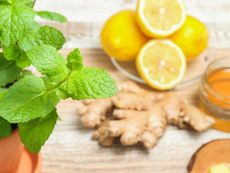 Grow Healing Herbs Indoors: Combat Winter Illness With A Medicinal Garden
Grow Healing Herbs Indoors: Combat Winter Illness With A Medicinal GardenIf you are growing medicinal plants at home, did you know you also can grow an indoor medicinal herb garden? Read on for more.
By Susan Albert
-
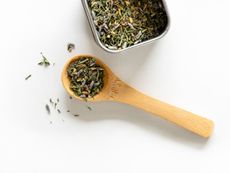 Grow Your Own Herbes De Provence - How To Grow, Dry, And Store Herbs
Grow Your Own Herbes De Provence - How To Grow, Dry, And Store HerbsHomemade gifts can add that special touch to any occasion, such as a jar of herbes de provence. Click here to learn how to grow and make your own for gifting.
By Laura Miller